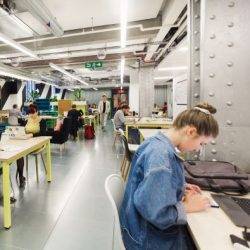September 8, 2017
London’s commercial office market slows down as occupiers choose to stay put

Following a period of stability over the last few quarters, despite the Brexit vote, London’s office market is increasingly coming under pressure, according to Clutton’s London Office Bulletin for Summer 2017. According to Ralph Pearson, Clutton’s head of commercial agency – this is due to reduced levels of occupier activity post Brexit where there is increased instances of tenants renewing leases rather than electing to relocate. Although take up in the second quarter of this year was close to the five-year average, the main reason for this was due to activity carried out by WeWork, which accounted for the two largest deals – involving a total of 425,000 sq ft in Shaftesbury Avenue and at South Bank Place. The market has since begun to stagnate, and so far, for the third quarter of this year quoted rents have slipped across much of central London with rent free periods continuing to lengthen.


































July 13, 2017
What we may be missing about IBM’s decision on flexible working 0
by Gary Chandler • Comment, Flexible working, Property, Workplace design
More →